Overview
Looking to enhance your Travel Medicine qualifications?
The RCPSG Postgraduate Diploma in Travel Medicine has been developed to support healthcare professionals in their role as travel medicine practitioners.
It offers an academic base that assists individuals to become autonomous and reflective practitioners in the delivery of travel medicine services. The course is delivered at postgraduate level and carries 120 credit points at SCQF Level 11.
The content and level of this course facilitates growth and development of cognitive, leadership and practical skills. This will enhance travel medicine practitioners’ practice, by enabling them to make sound judgements and apply best clinical practice or evidence-based theory to support their decision making. This will ultimately support client care, in situations prone to rapid change and subsequently, improve travellers’ health.
If you complete this course, you'll be eligible to join the College as a Member of the Faculty of Travel Medicine (MFTM). You'll also be able to continue your studies to master's level with a MSc Advanced Practice (Travel Medicine) from Glasgow Caledonian University. Details of each of these can be found below.
The application deadline for the next cohort is 1 April 2026.
Modules
This course is made up of seven postgraduate modules delivered over a period of 12 months. See below what's included in each module.
Epidemiology, Immunology and Travel Risk Assessment
By the end of this module, you will have knowledge and understanding of:
- Aspects of epidemiology in relation to the subject of travel medicine.
- Principles of immunology in relation to travel medicine.
- Critical evaluation of the principles underpinning a risk assessment.
- Current key principles of behaviour and the human factors that lead individuals to make decisions which impact their health when abroad.
Non-Vector Borne Infections
By the end of this module, you will have knowledge and understanding of:
- The epidemiology, pathophysiology, clinical manifestations and impact of non-vector borne infections.
- Effective strategies for prevention of non-vector borne infections, including immunisations to maximise protection of at-risk populations.
- The relationship between travellers, host populations and non-vector borne infections and potential implications for travellers in the context of emerging infections.
- Communication of risk assessment and behaviour modification strategies in the preparation of overseas travel, in relation to non-vector borne infections.
Vector Borne Infections
By the end of this module, you will have knowledge and understanding of:
- The various disease vectors and how they transmit infection.
- Epidemiology and health implications of vector-borne infections with particular emphasis on malaria and current control approaches to prevent these infections.
- Insect borne infection advice including bite prevention, vaccination where appropriate and in relation to malaria, chemoprophylaxis available and the factors affecting compliance with these measures.
- The principles of diagnosing and treating malaria and other vector borne illnesses and resources that support accurate clinical decision making in relation to prevention and treatment of malaria in travellers.
Environmental Factors and Travel
By the end of this module, you will have knowledge and understanding of:
- The principles of environmental conditions in the context of traveller’s health
- The environmental impact overseas travel has on host communities alongside the travel industry economy.
- Human pathophysiology and physiological effects of flying and the interventions that help prevent illness.
- Risk of trauma to travellers and strategies for prevention.
- Travel insurance and access to medical care overseas.
Research Methods
By the end of this module, you will have knowledge and understanding of:
- Research philosophy.
- Types of research and research approaches.
- The research process, including literature searches, research design and methodology.
- Data management and analyses.
The Complex Traveller – Pre and Post Travel
By the end of this module, you will have knowledge and understanding of:
- Categories of travellers and the complex nature of their special travel requirements.
- Risk factors associated with different categories of travellers and strategies and mechanisms for advising them for overseas travel.
- Management of travellers returning with commonly presented infectious diseases.
- Medical conditions and the potential impact they could have on a traveller’s health.
- Complexities and implications relating to travellers with medical conditions, and current strategies used to prepare them for overseas travel.
Governance, Legal and Ethical Considerations
By the end of this module, you will have knowledge and understanding of:
- The legal implications and ethical aspects that may affect some travellers.
- Differences in legal structures, clinical governance and practice in relation to the delivery a travel medicine services.
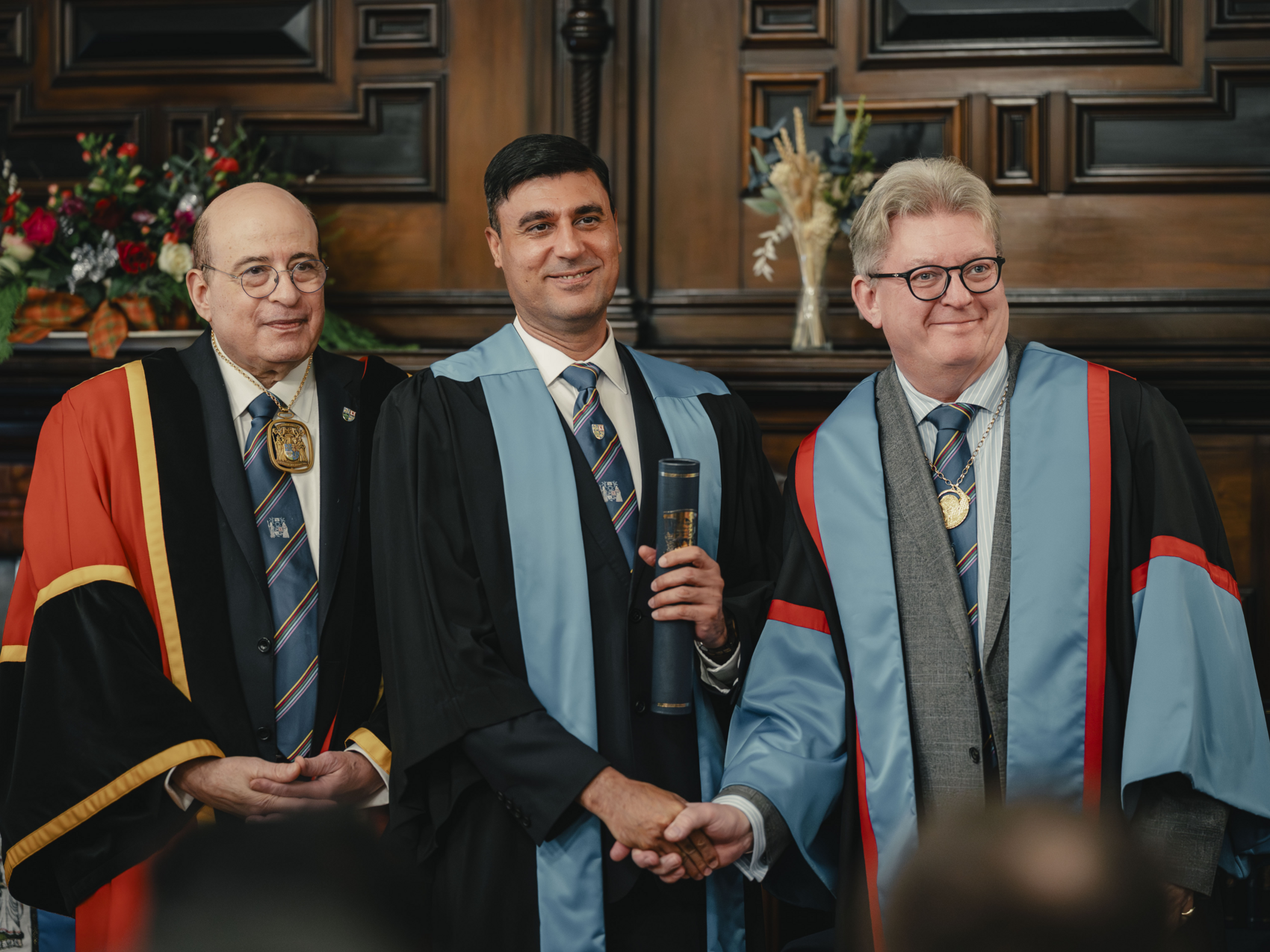
A global learning experience
"Completing this course allowed me to enhance my work as a specialist in the field, I learned more about vaccinations and infectious diseases. Communicating with experts in the field and being a part of a wide international travel medicine team has been so valuable – membership is the pathway to enhance my skills and allows international recognition with great experiences."
- Haider Saddam Qasim MFTM RCPS(Glasg), Travel Medicine Specialist, Australia
Progression to MSc Advanced Practice (Travel Medicine)
Upon successful completion of the Postgraduate Diploma in Travel Medicine, you'll be eligible to continue your studies to master's level with Glasgow Caledonian University.
You'll be awarded an MSc Advanced Practice (Travel Medicine) if you complete a 60-credit dissertation module over two trimesters in a six-month period. The dissertation would build on the work started in your Postgraduate Diploma. For more information or to sign up, go to the GCU MSc Advanced Practice page.
Key information
This course consists of seven postgraduate modules delivered over a period of 12 months. The course will be delivered by specialists in travel medicine using a blended model of two residential elements and online interactive learning.
Participants are expected to attend and contribute to online educational and peer support platforms. Cohort four will begin on 5 May 2026 with an online residential week of learning taking place on 5–8 May 2026. The second residential will be hybrid and is planned to take place 5–9 October 2026. The residential weeks are mandatory, though we'll consider applications from students requesting online participation.
The application deadline is 1 April 2026. Spaces are limited and will be offered on a first come first served basis.
The Diploma fee is £4,545 and this will include Affiliate membership of the Faculty of Travel Medicine for the duration of the course. We offer flexible payment options across our diploma courses to support you in your studies. Please get in touch with us at pgdiptravelmed@rcpsg.ac.uk to discuss our personalised payment plans.
We also have approved ELC provider status. Should you be eligible to apply for ELCAS through the Ministry of Defence, please get in touch with the course coordinator in the first instance.
Once accepted onto the course, a deposit of approximately 10% of the course fee will be due to hold your place. The remaining payment will be made over two further instalments, one due by your start date and the other due six months later. The full cohort timetable will be provided upon enrolment.
To apply, fill in the application and reference forms found below under 'Documentation' and send them to pgdiptravelmed@rcpsg.ac.uk. The course lead, as well as a dedicated admissions team will review your application and be in touch with you. The application deadline for the next cohort is 1 April 2026 and as spaces are limited, they will be offered on a first come first served basis.
Documentation
Please download the application documentation and send them to pgdiptravelmed@rcpsg.ac.uk. The application deadline is 1 April 2026, spaces are limited and will be offered on a first come first served basis.
Professional recognition
Upon successful completion of the RCPSG Postgraduate Diploma in Travel Medicine, you will be invited to attend a diploma ceremony to recognise your accomplishments. You will also be eligible to join the College as a Member of the Faculty of Travel Medicine (MFTM).
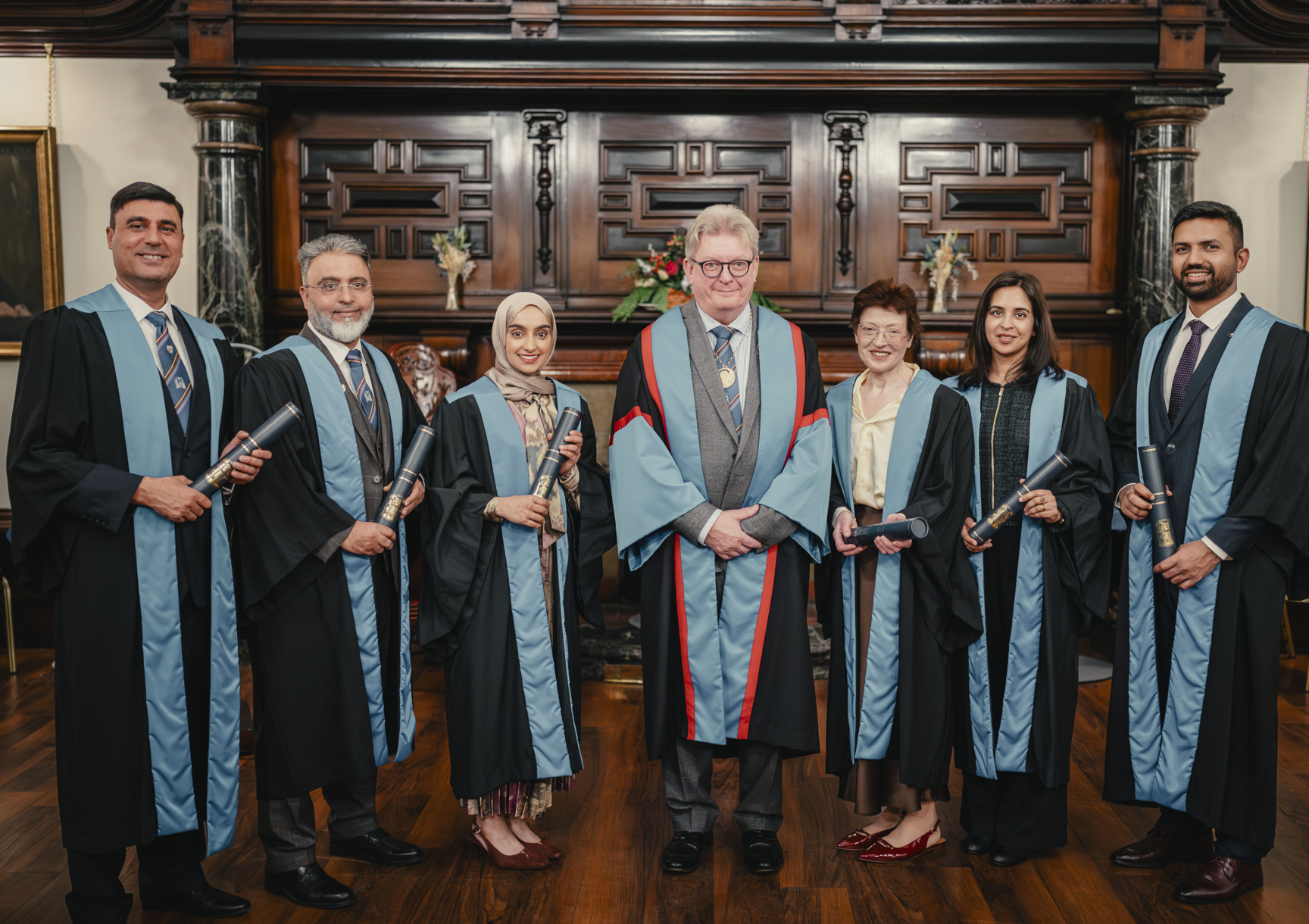
Recent Postgraduate Diploma in Travel Medicine cohort pictured with David Ross, Dean of the Faculty of Travel Medicine
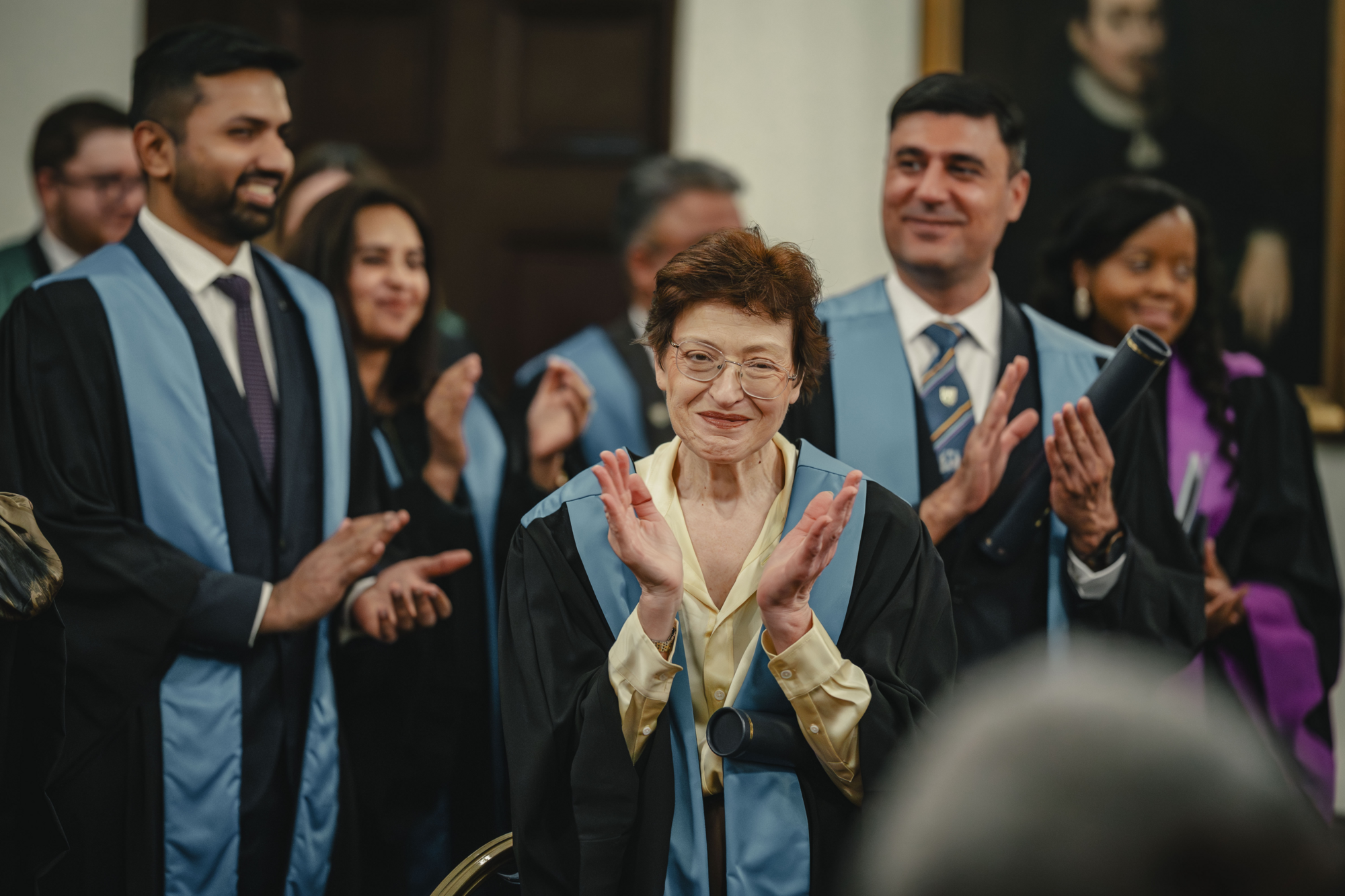
Luciana Massari, Band 5 Nurse NHS and recent Postgraduate Diploma in Travel Medicine participant
Entry and language requirements
Applicants must be able to satisfy the general admission requirements of the Royal College of Physicians and Surgeons of Glasgow.
- Applicants must hold a UK bachelor’s degree with honours (2:1 or above) in medicine and surgery, nursing, dentistry, paramedic science or pharmacy or;
- Applicants must hold a UK postgraduate qualification in a health-related subject based on clinical experience or;
- Applicants must hold a bachelor’s degree with honours (2:1 or above) from a recognised international provider of higher education in medicine and surgery, nursing, dentistry, paramedic science or pharmacy or;
- Applicants must hold a postgraduate qualification in a health-related subject based on clinical experience from a recognised international provider of higher education or;
- Applicants must have a record of on-going professional development in their respective field if they don't hold a degree. This record must cover professional development with a significant clinical component from when the applicant began working in their field. This only applies to those who have been practicing without a degree since the year outlined in the table below.
| Degree | Working since |
|---|---|
| Medicine | – |
| Nursing | 2009 |
| Dentistry | – |
| Paramedic Science | 2018 |
| Pharmacy | 1967 |
- Applicants must hold professional registration with the governing body for their profession in the country which they're resident.
- Applicants must have professional experience in travel medicine practice or aspire to practice in travel medicine when they complete the Postgraduate Diploma in Travel Medicine.
Applicants with English as a second language will be assessed for suitability during the application process. English language requirements for this level of study include:
International English Language Testing System (IELTS) Academic module (not General Training):
- Overall score 6.0
- No sub-test less than 5.5
TOEFL IBT: 78; no sub-test less than:
- Reading: 17
- Listening: 17
- Speaking: 17
- Writing: 17
or any other common equivalent English language qualification.
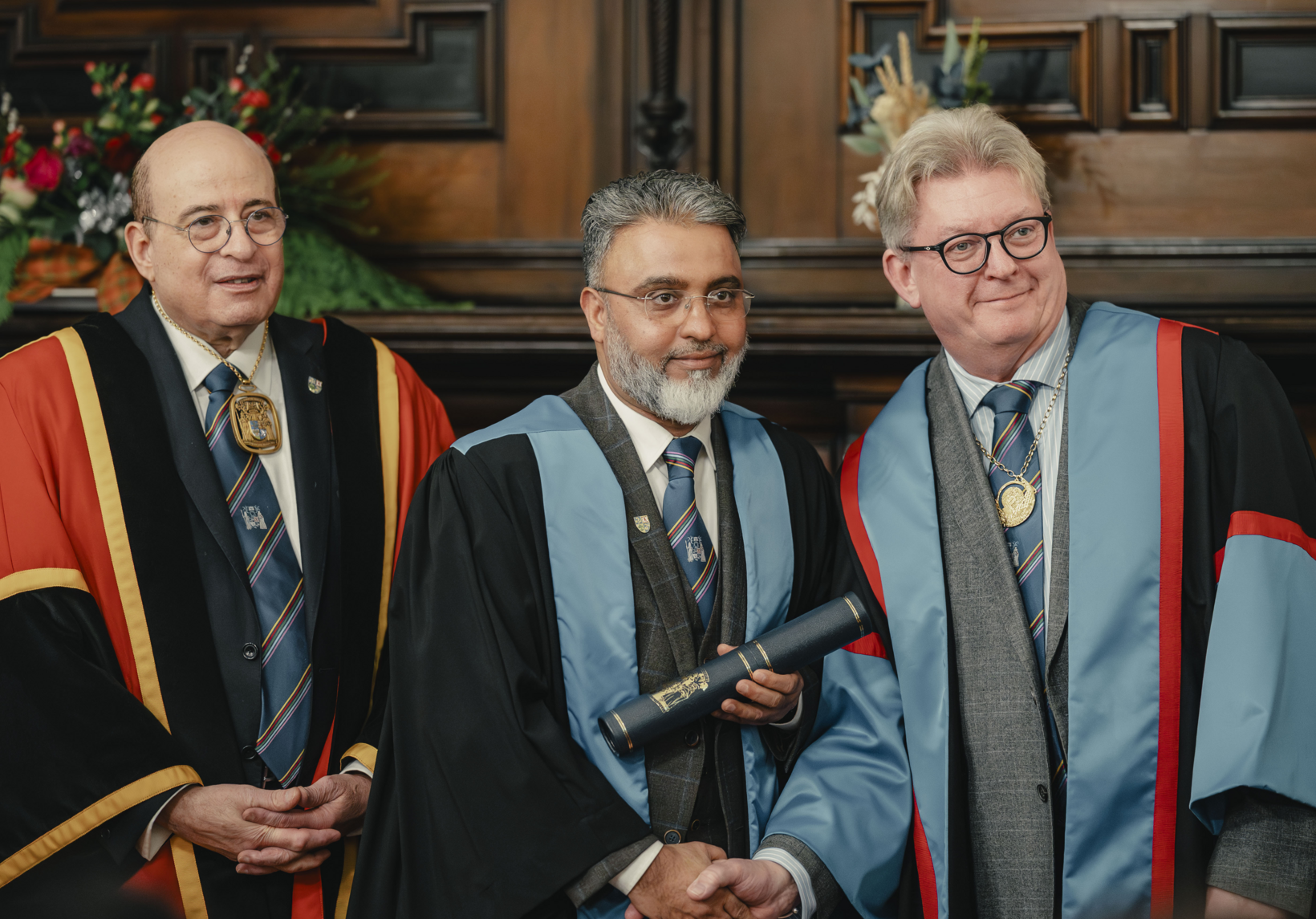
Membership of the Royal College of Physicians and Surgeons of Glasgow
Those who successfully complete this course will be eligible to join the College as a Member of the Faculty of Travel Medicine (MFTM). Non-members starting this course will be offered complimentary Affiliate membership for one year and access to TRAVAX while studying.
Gallery
Some images from Travel Medicine events at the College.
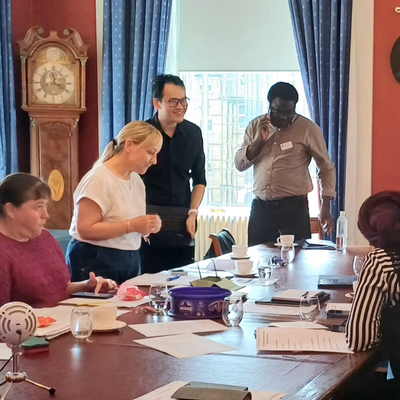
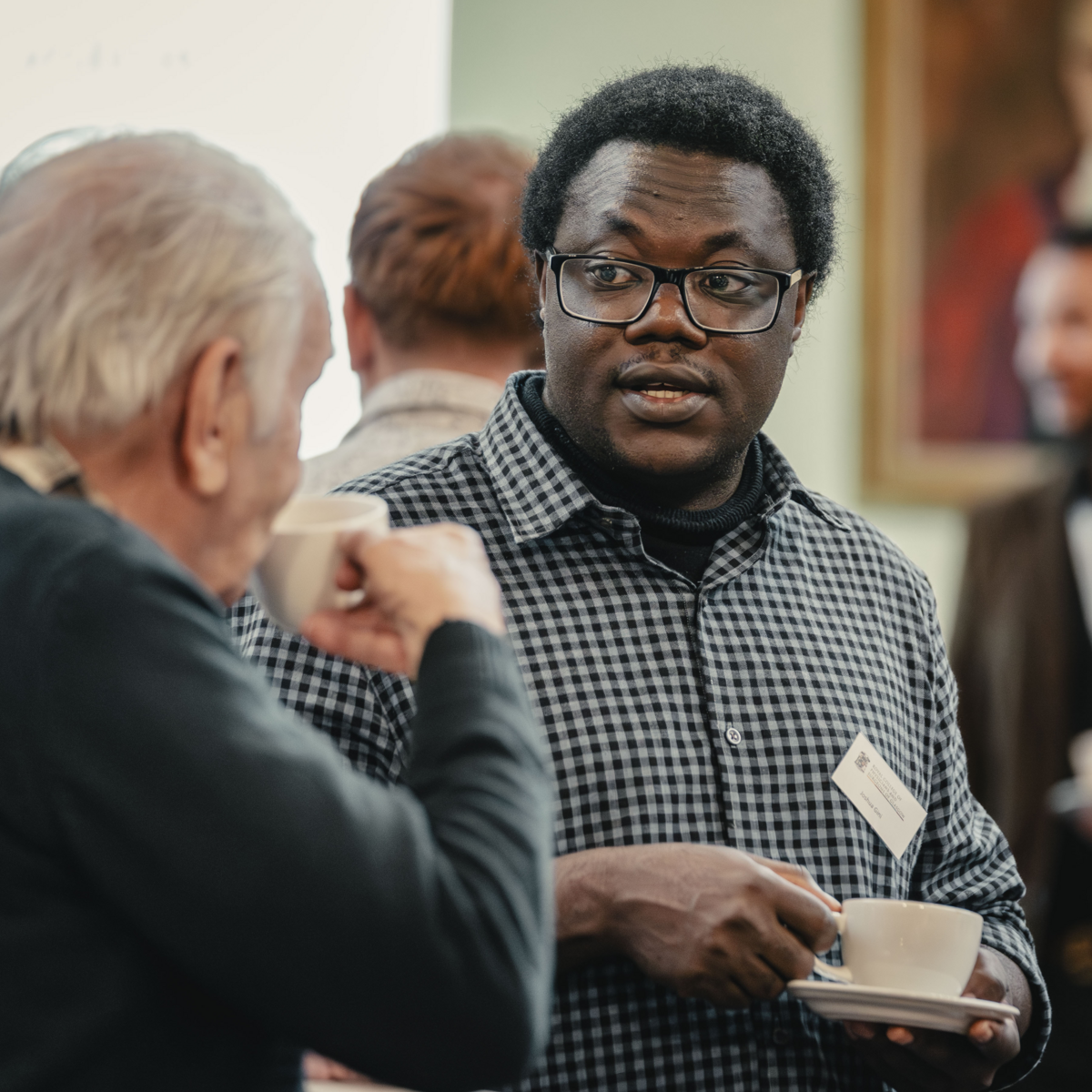
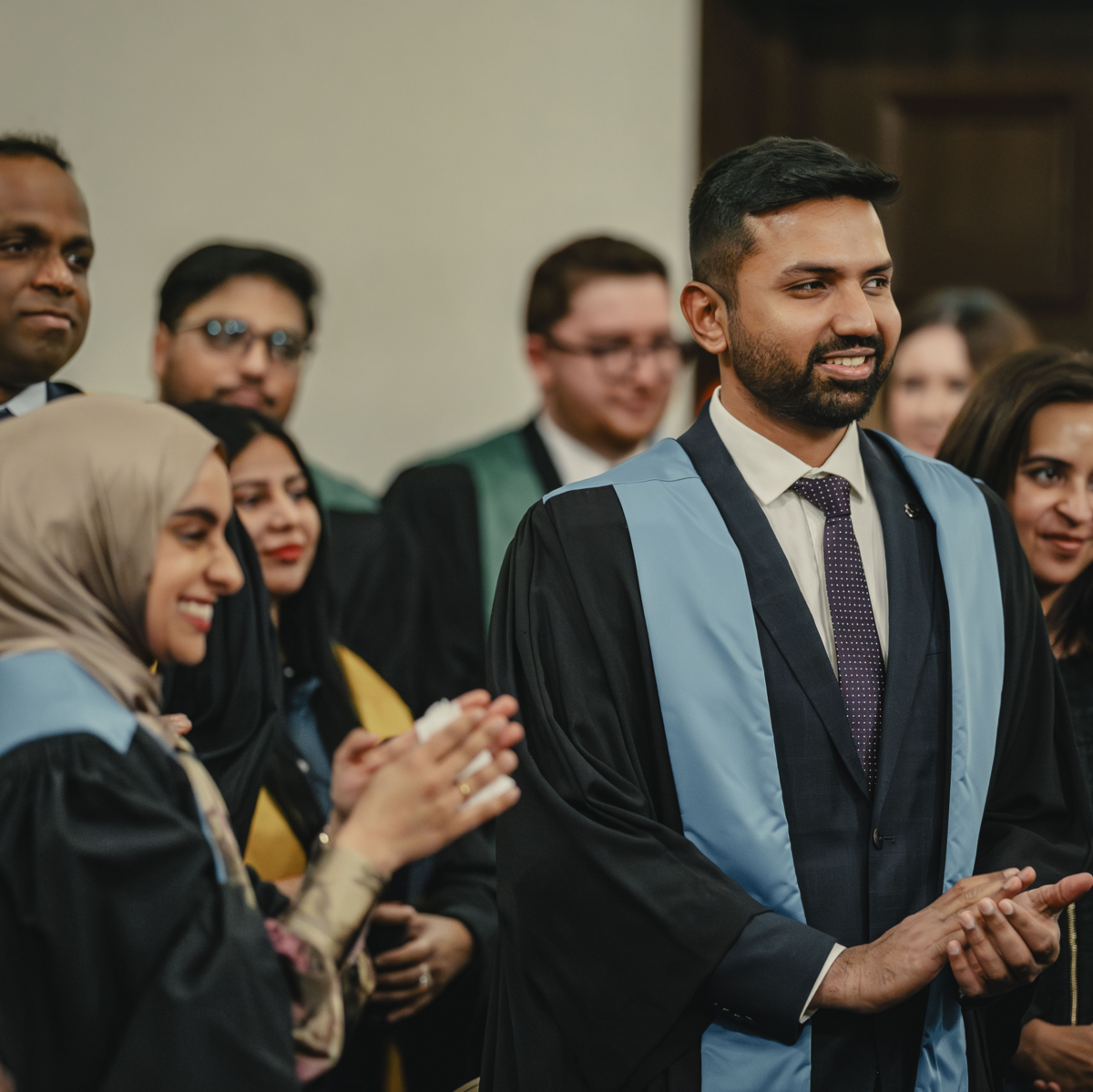
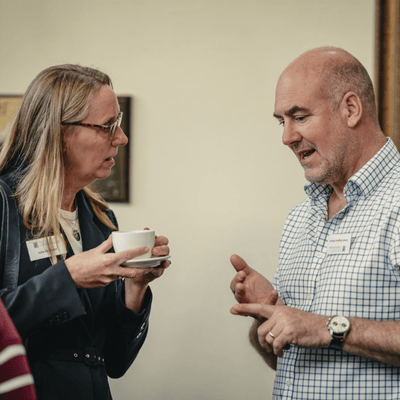
Frequently asked questions
The Diploma complies with university requirements for a postgraduate level diploma in accordance with QAA and SCQF frameworks. The full course comprises 120 credits, built up over eight modules each with 15 credits. Under QAA and SCQF frameworks each credit is equivalent to ten hours of learning for the average learner. This learning will comprise taught components (on the residential courses, the live tutorial sessions and the online learning) and self-directed study and research throughout the course. Credit points provide the associated measure for describing the volume of outcomes, and the actual time each learner spends will vary depending on their style of study and previous knowledge. As a guide, each 15-credit module therefore equates to approximately 150 hours of study (a combination of self-directed study and attendance at lectures/seminars), and will be covered in a period of two months.
There are three types of activity that will require attendance – the residential learning components of the course, the live (online) tutorial sessions and the final online course examinations.
The first residential component of the course is one week long and will run online from approximately 9am to 5pm (UK Time). The second residential component of the course is also one week long and is planned to run as a hybrid format in October. The residential weeks are mandatory and contain essential live learning. Attendance and participation are an integral part of the course. We will accept applications from students requesting online participation and will discuss the requirements for this with any prospective student requesting this option. This request must be made at the time of application and cannot be changed later.
There will be two online live sessions for each of the seven modules. These sessions will run for 90 minutes – 2 hours. The dates and times will be confirmed prior to the start of each module. You will be given as much notice as possible for these sessions and are expected to attend these. If you are not able to attend an individual session you will be asked to evidence work related to the session to the tutor as part of the course. These sessions cover essential information and are therefore compulsory. Individuals who do not attend these will miss out on crucial knowledge and may be underprepared in assessments. At the end of the course participants will be required to attend online assessments, including evidencing practical skills in an OSCE (Objective Structured Clinical Examination). Dates and times of these sessions will be provided well in advance.
Yes, the course will be delivered from the UK, and sessions will be timed accordingly. You should build this into your planning if you are not within the UK. Please be aware that the UK follows a pattern of Daylight Savings time which may be different from arrangements in other countries.
There will be a variety of assessment methods used in each module of this course. This includes (but is not limited to) written assessments, presentations, an OSCE and case studies. As a guide, a single module may include written assessments totalling 3,000 words.
Each candidate will be given clear feedback for all submitted assessments, to help them achieve any re-sit they may have. Only two opportunities will be given to achieve any of the course assessments. However, if another attempt is necessary, a third attempt may be awarded by the Academic Panel, but only in extenuating circumstances. In other cases, students may be required to complete the full module again.
Each candidate will be fully supported throughout their studies to help them achieve the full award offered. However, life circumstances may intervene so each candidate will be assessed on an individual basis, and may therefore be possible for some candidates to defer until the next cohort.
The course will be led by a Course Director, who will be responsible for overseeing the full course. You will also have the support from individual Module Leads for each of the seven modules. These tutors will support you throughout your learning and you will be able to make contact with them if you have any concerns about your study. The College also provides appropriate administrative support and an Academic Lead to oversee the quality assurance aspects of the course.
The total course fee is £4,545 with payment due on acceptance of application. A payment plan option may be considered. We will request a deposit of £545 to secure your place on the course, with the remaining fees being collected in two stages. The course fees include Affiliate membership of the Faculty of Travel Medicine for the duration of the course. You are required to make your own travel and accommodation arrangements for the second residential learning week, and the College can provide accommodation recommendations upon request.
Each application will be assessed on an individual basis and those with relevant professional qualifications and appropriate travel medicine experience may be offered the opportunity to undertake an entrance assessment. This is designed to evidence academic ability at postgraduate Masters level. Applicants will be guided by the Course Lead on this.
The College may offer you an alternative condition, and may direct you to a lower level of study in preparation for continuing to Masters level in the future.
If you have any questions, feel free to contact the coordinator. Their details can be found below.

Access exclusive travel medicine resources
Get member-only access to clinical updates, eLearning and guidelines relevant to current global travel health practice.
Join a global network of specialists
Connect with a community of travel medicine professionals, share knowledge and gain recognition through College affiliation.
Save on your Diploma enrolment
Members receive discounted rates on the Postgraduate Diploma in Travel Medicine and other faculty-led qualifications and events.
Need more information?
Our team is here to help with application queries, course details or guidance.
Contact us
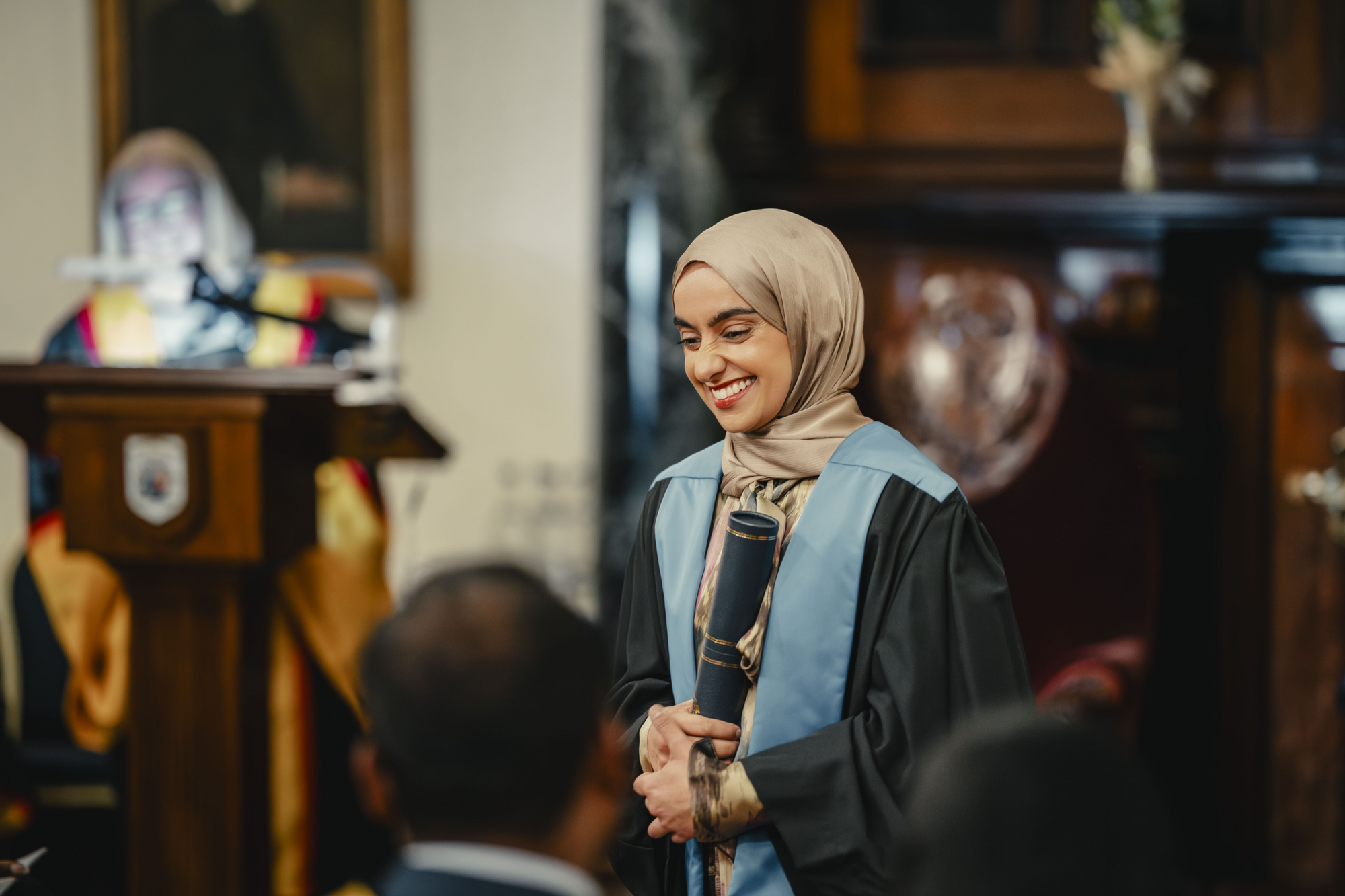
 in travel medicine_hero_1920x1080 0725.jpg)
